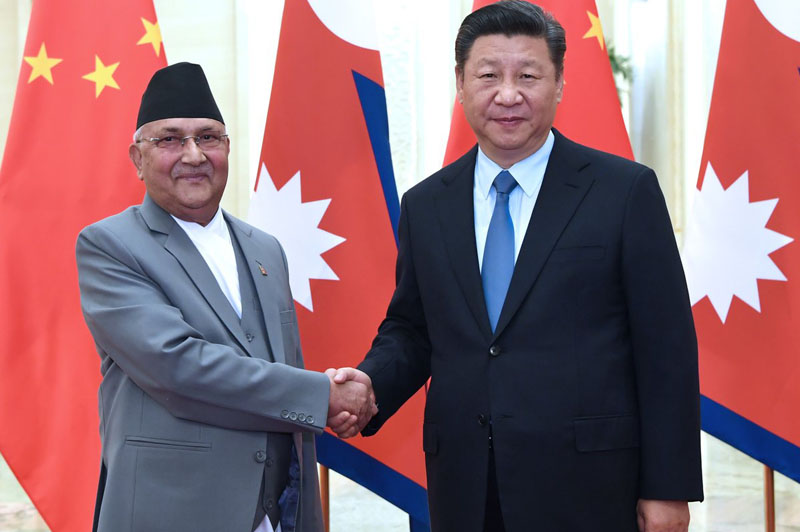Under Chinese Pressure: Nepal’s Push Toward BRI and Lessons from Brazil’s Cautious Diplomacy

In recent years, as China expanded its Belt and Road Initiative (BRI) globally, its relationships with countries like Brazil and Nepal highlighted China’s assertive stance and evolving “wolf warrior diplomacy.” Both Brazil and Nepal find themselves at crucial junctures, navigating the complex web of China’s promises of economic growth through BRI. Yet, Brazil's cautious approach and Nepal’s imminent signing under pressure reveal stark differences in sovereignty concerns and diplomatic influence.
Brazil’s Hesitance: Strategic Caution Over Hasty Commitments
Brazil’s response to BRI is particularly insightful. While Brazil remains open to stronger South-South cooperation, President Luiz Inácio Lula da Silva’s administration hesitates to fully embrace BRI, seeking clearer assurances on how Brazil’s sovereignty and economic interests would be preserved. Unlike Nepal, Brazil remains wary, debating whether BRI’s promised growth would align with national priorities or risk creating dependency on China for infrastructure development and trade. President Lula's emphasis on analyzing “what is in it for Brazil” signals a cautious approach in contrast to many other countries influenced by China's economic assertiveness.
In a stark juxtaposition, Nepal, under Prime Minister KP Oli, is moving towards signing the BRI, reportedly under significant diplomatic and economic pressure from China. The Chinese government has used multiple channels—economic incentives, political lobbying, and even public media influence—to pressure Nepal into BRI alignment. The pace and nature of this pressure have raised concerns about Nepal’s sovereignty, with Beijing demonstrating a willingness to press Nepali leaders for swift alignment despite limited assessments of long-term impacts.
Chinese Assertiveness and Sovereignty Concerns: Nepal’s Experience
For Nepal, the situation feels increasingly complex. China’s BRI promises vast infrastructure development, such as road, rail, and energy projects, aimed at bridging Nepal's developmental gaps. Yet, this push has grown increasingly assertive, leading to skepticism within Nepalese political and civic circles. Concerns revolve around how deeply China seeks to entrench its influence in Nepal’s governance, sometimes to the detriment of Nepali independence in policymaking. For instance, reports have emerged of China's direct interference in Nepal’s political landscape, even funding think tanks and media campaigns that champion closer ties to China while sidestepping public debate.
This shift aligns with China’s more aggressive “wolf warrior” diplomacy, characterized by China’s diplomats using assertive tactics to suppress criticism, particularly over territorial and political matters. Such diplomacy has extended into Nepal, with Chinese diplomats openly advocating for Nepal’s full participation in BRI, occasionally sidestepping Nepali government’s internal discussions on feasibility.
Is Nepal’s Sovereignty at Stake?
The signing of BRI, ostensibly a strategic economic move, is increasingly seen as a matter of sovereignty. China’s push has often included narrative control, with state-backed Chinese media and diplomats working to foster pro-BRI sentiment in Nepal. In public remarks, Chinese officials have emphasized “historic ties” and “shared interests,” positioning BRI as a natural extension of bilateral friendship. Yet, this rhetoric sometimes downplays Nepali voices calling for balanced engagement with China and India to avoid overreliance on a single external power.
China’s handling of Nepal contrasts Brazil’s experience. While Brazil debates BRI in terms of pragmatic benefits and long-term national interest, Nepal faces the added challenge of a diplomatic balancing act, exacerbated by China’s direct and overt pressure tactics.
Learning from Brazil: Weighing Sovereignty Against Economic Incentives
Brazil’s caution reflects a broader awareness of the sovereignty costs associated with BRI. Brazil’s example may serve as a vital lesson for Nepal in maintaining diplomatic autonomy. Rather than succumbing to external pressures, Brazil has managed to align its South-South ambitions with a careful assessment of BRI’s impact on national priorities.
In conclusion, Nepal’s potential BRI alignment under China’s influence underscores a critical juncture for the nation. Drawing lessons from Brazil’s stance, Nepal might consider a more measured approach, evaluating BRI through the lens of sovereignty, sustainability, and self-reliance. As Nepal deliberates on BRI’s promises and risks, the need to uphold national interests and autonomy remains paramount—ensuring that foreign partnerships serve Nepal, not overshadow its sovereignty.




![From Kathmandu to the World: How Excel Students Are Winning Big [Admission Open]](https://nepalaaja.com/img/70194/medium/excel-college-info-eng-nep-2342.jpg)
